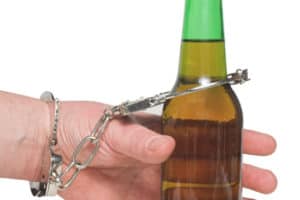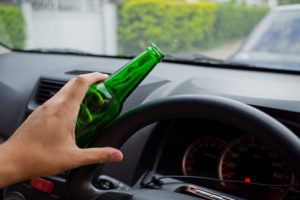
In Texas, the “Zero Tolerance Law” refers to the state’s stance on minors and alcohol consumption. If a driver below the age of 21 has any measurable alcohol in their system, they will face a DUI or DWI charge.
The type of charge an underage driver faces under the Zero Tolerance Law depends on their blood alcohol concentration (BAC) and the circumstances surrounding their arrest.
How Does the Texas Zero Tolerance Law Apply?

The Zero Tolerance Law applies to any person under the age of 21 who drives a motor vehicle in a public location throughout Texas. They do not have to be a Texas resident or hold a Texas driver’s license to face charges for breaking this law.
This law also applies anyone who operates a boat or watercraft, flies an airplane, or assembles or operates an amusement park or carnival ride. However, in most instances, it is referred to in the context of underage drinking and driving.
What Is the Reasoning Behind the Zero Tolerance Law?
In Texas, no one under the age of 21 can legally consume alcohol. Because it is illegal for a minor to drink any type of alcohol, the state statutes also make it illegal to operate a motor vehicle, boat, plane, or midway ride while under the influence of alcohol or any other intoxicating substance.
Zero Tolerance also applies to operating a vehicle with any type of controlled substance or illegal drug in your system. In fact, you could face charges for driving while on a prescription drug or over-the-counter medication.
What Are the Penalties for Violating the Zero Tolerance Law?
The penalties a young driver faces for violating this law depend on whether they have any prior drinking and driving offenses, or any aggravating circumstances present at the time of arrest.
For drivers under the age of 21, DUI penalties are as follows:
First offense: Class C misdemeanor DUI charge
Up to $500 in fines
20-40 hours of community service
Attendance at an alcohol awareness course
Second offense: Class C misdemeanor DUI charge
Up to $500 in fines
20-40 hours of community service
Attendance at an alcohol awareness course
Third offense: Delinquent conduct by a minor DUI charge
Up to $500 in fines
40-60 hours of community service
Attendance at an alcohol awareness course
You may also have to install an ignition interlock device on your vehicle and attend additional classes. In some cases, the judge may require parents to attend the courses as well.
Will You Lose Your Driver’s License if You Violate the Zero Tolerance Statute?
You will lose your license for violating the Zero Tolerance DUI law, as follows:
- First offense: 60-180 days
- Second offense: 120 days to 2 years
- Third offense: 180 days to 2 years
The only way to avoid a license suspension is to request a driver’s license suspension hearing, where you can present a case as to why you should not lose your license.

How Do the Police Determine Whether You Broke the Zero Tolerance Law?
The police can use any of the following three scenarios to establish probable cause to arrest a young driver under the Zero Tolerance statute:
- If the driver fails a field sobriety test or portable breathalyzer test
- If the officer believes that the driver lacks the physical or mental capacity to safely drive a vehicle
- If the offer smells any alcohol on the driver or in the vehicle
So, even if a young driver has had nothing at all to drink, they could find themselves under arrest for underage DUI charges, based solely on an officer’s olfactory opinion.
In Texas, the police measure intoxication through chemical testing for blood alcohol concentration (BAC). Typically, the police request breathalyzer testing although they may legally request that you submit to blood testing instead.
You can refuse to submit to chemical testing in most cases. However, doing so will automatically cost you your driver’s license for 6 months for the first refusal and two years for the second.

Can You Fight Zero Tolerance DUI or DWI Charges?
You can fight a drunk driving charge issued under this statute and, in most cases, you should seriously consider doing so.
Although the prosecutor may try to minimize the gravity of an underage DUI or DWI charge, a conviction can seriously affect a young person’s life for years or decades.
Before making any decisions about your case, consult with the Law Offices of Randall B. Isenberg. We have a variety of proven strategies we can use to fight these charges. And, with more than 35 years of experience in the Texas criminal justice system – working both as a prosecutor and state judge – attorney Randall B. Isenberg has the insight and knowledge to get the job done for you.
We offer a free, no-obligation consultation and case evaluation. Call 214-696-9253 today to get started.










